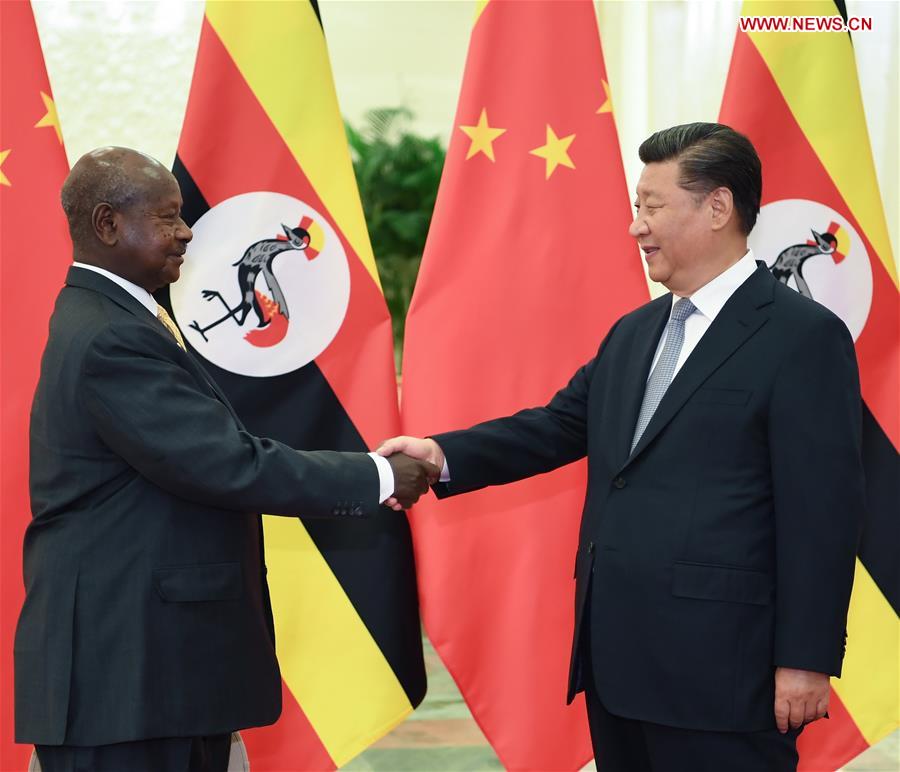Belt Road Initiative Is a Catalyst For Economic Take-off; Critics Lack Facts

More than six years since China’s president Xi Jinping announced the birth of Belt Road Initiative (BRI), BRI as it is often referred too became a new and almost daily vocabulary in the field of International Relations and Global Politics. The project which is the world’s most ambitious infrastructure investment in mankind’s history has caused debate among scholars, policy makers and politicians.
Despite BRI’s very well-known objectives such as promotion of economic prosperity for countries in the project, strengthening exchanges and mutual learning between various civilizations, promoting regional economic cooperation, peace and development which has never changed, some quarters continue to ignored these known objectives and have instead ventured in promoting their theories like the so called ‘debt diplomacy’, ‘debt trap’ and fables like its Beijing’s hidden desire to extend her influence on global stage which all are certainly far from reality.
Sadly, BRI sceptics focus more on their fears ignoring undeniable fact backed benefits the project will bring to the over 70 countries that account to over 65% of world’s population. Certainly, improving connectivity between China and countries of Africa, Asia, Europe, the Middle East and America’s by improving infrastructure development for telecommunications networks, power plants, modern shipping lanes, railways, roads and airports at a time when there’s funding gaps is a huge step towards realizing world’s development or to be specific 65% of the world’s population which by numerical sense is a significant achievement.
Whereas it is a fact that BRI project is China lead, this should not be point of focus; we can actually go by Deng Xiaoping’s two cat theory after all, all countries along BRI project have a lot to gain from the project no matter who’s leading it.
In Africa for example, a 2019 United Nations Economic Commission for Africa (UNECA) funded study revealed that East African Region would greatly benefit from BRI project through trade exports with an increase of $192 million on annual basis. On the other hand, World Bank (WB) studies have also shown that Africa to meet her development targets and infrastructure development, annually, the continent needs $170 billion investments in infrastructure specifically for 10 years. Whereas this figure is too big to raise raise annually, African Development Banks (ADB) argues that African countries can seize China – Africa good relations and source funds from BRI project to fill their infrastructure funding gaps.
With this in mind, African countries stand higher chances of gaining from BRI. Put differently, Countries that are alongside BRI project have great economic benefits only that “sino-sceptics” by choice have opted to focus on the so-called “debt trap.” On outlook, the arguments from BRI critics seem to hold, but on closer analysis, it is simply a cobweb of politics with geopolitics feart.
The U.S for example which from the start has been sceptic about the project, the only reason they have put forward is that the project is a “debt trap”, but the real fear is psychological – a belief that the project puts China more at a stage of Global politics which to some who believe that the U.S is meant to dominate feel it’s unacceptable and have therefore resorted to nonexistence ‘debt-trap’ feart theory despite lacking facts to back them.
Therefore, African countries, their elites and China should not wait for “sino-skeptics” to shape the BRI agenda in Africa. The best way to counter this anti-African development talk with “debt-diplomacy” theories is to ensure right information is in public. There is need for African scholars, Universities and think tanks to do more research and provide empirical evidences other than allowing non fact backed ‘sino-sceptics’ to shape BRI debate with their debt trap theories.
Ssemanda Allawi
Twitter @SsemandaAllawi
related publications
DWC
Development Watch Centre
Kampala - Uganda
ADDRESS
Plot 212, RTG Plaza,3rd Floor, Office Number C7 - Hoima Road, Rubaga
CONTACT
+256 703 380252
info@dwcug.org




